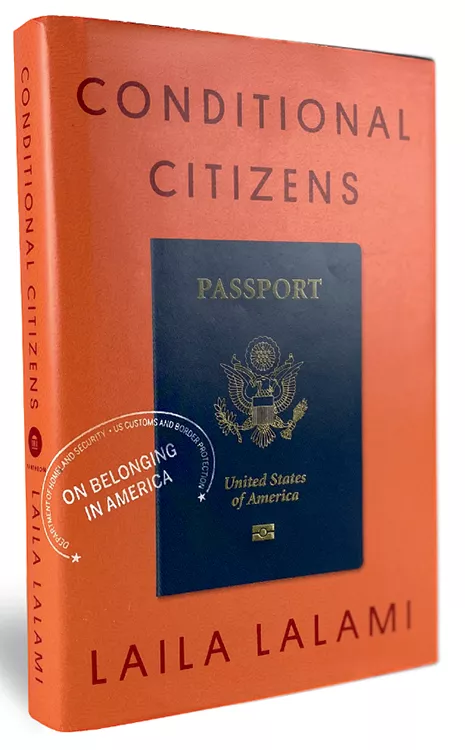Life As a Conditional Citizen, Revisited
Laila Lalami explores the gray zones of citizenship in the United States

In 2000, shortly after receiving US citizenship, Laila Lalami traveled to Hong Kong for a linguistics conference with her husband, Alex. On the way back, a customs agent reviewing their passports laughed and asked Alex, "How many camels did you have to trade in for her?"
The racist, sexist encounter was the first time Lalami experienced the notion of "conditional citizenship." She thought that being a US citizen was supposed to mean "being an equal member of the American family—a spirited group of people of different races, origins, and creeds, bound together by common ideals," she writes in Conditional Citizens: On Belonging in America (Pantheon, 2020). "As time went by, however, the contradictions between doctrine and reality became harder to ignore."
In her first work of nonfiction, Lalami, a National Book Award finalist and the author of The Moor's Account, delivers a powerful meditation on the gray zones many US citizens inhabit amid the traditionally rigid categories of race, religion, and gender. Tracking her own immigration story from Morocco to the United States, she connects her experience to larger historical trends that elucidate the ways in which citizens are marginalized in the Trump era: through voter ID laws, extrajudicial policing and surveillance, and the abrogation of rights to safe drinking water, health care, and clean air.
With white supremacy more prevalent than ever in US politics, Lalami enjoins us to look to those gray zones for what makes America truly great: the places where rich cultural legacies and identities interweave and intersect. "I have made my home in between these cultures, languages, and countries," she writes, "and I have found it a glorious place to be."
This article appeared in the May/June 2020 edition with the headline "The Gray Zones."
 The Magazine of The Sierra Club
The Magazine of The Sierra Club



